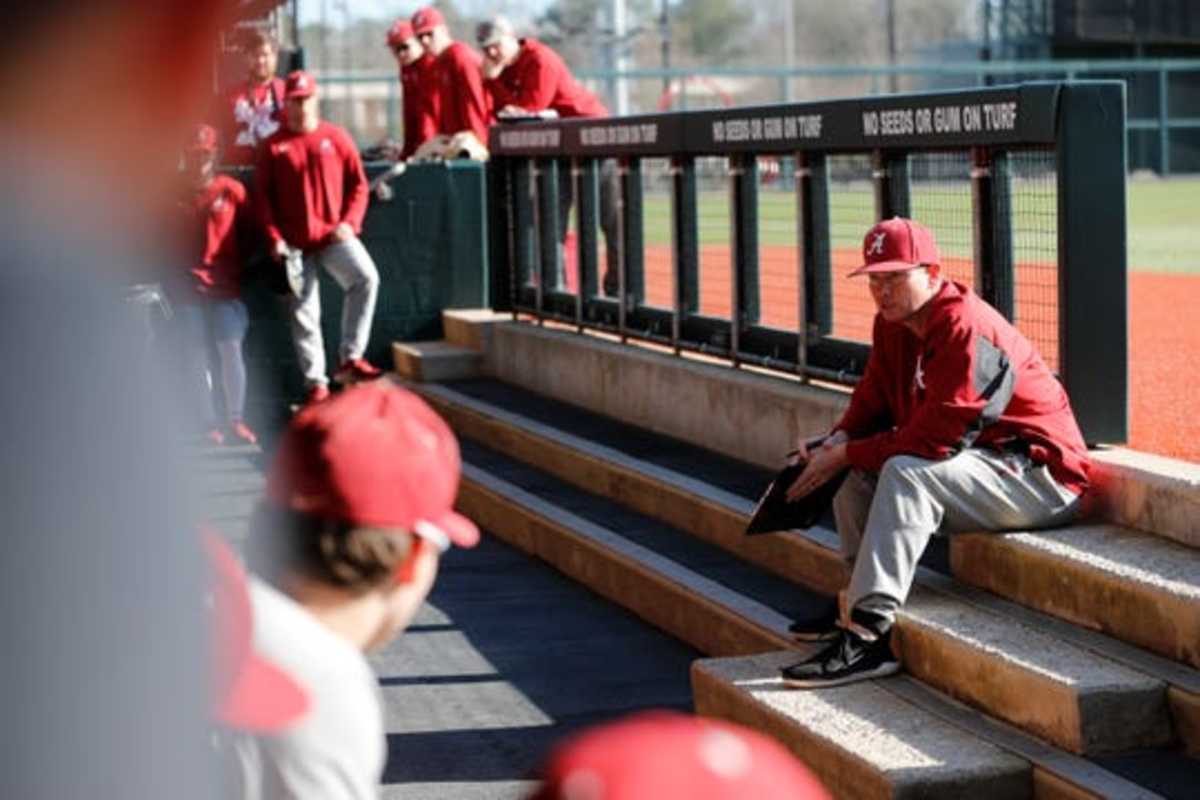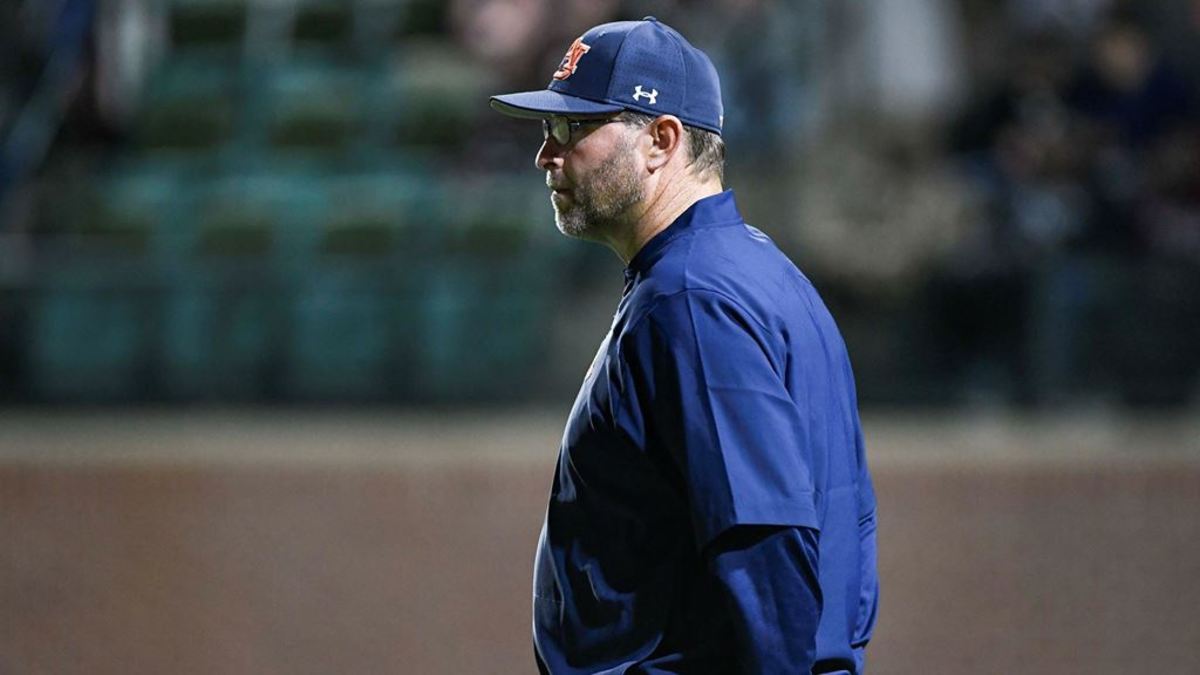Alabama Baseball's Brad Bohannon Addresses NCAA Baseball Scholarship Cap
It’s like recruiting with one hand tied behind your back.
That’s probably the way a lot of college baseball coaches across the country would put it. 35 players and 11.7 scholarships to split between them with a maximum of 27 players being eligible to receive those scholarships.
It’s an issue that we’ve brought up here at BamaCentral before, and an issue that will likely be brought up again.
Alabama baseball coach Brad Bohannon has been someone that has not been shy about addressing the NCAA’s scholarship issues in regard to baseball for quite some time. Serving as an assistant coach from 2001-2017 at Wake Forest, Kentucky and Auburn and now serving as the Crimson Tide’s head coach since 2018, Bohannon has seen his fair share of scholarship issues.
In an upcoming video series created by Matt Wyatt Media and titled Uneven: College Baseball’s Scholarship Issue, Bohannon pulled no punches.
“College baseball is not a level playing field,” Bohannon said in one of the shows promos. “[…] The strongest variable in looking at a team’s winning percentage over an eight- or 10-year period is going to be the dollars that they have access to.”

While many coaches fight this battle on their own turf in their small, tucked-away corner of the county, Bohannon now has help. The Uneven series features a plethora of college coaches and experts from across the nation, all coming together to face the unequal landscape that the NCAA has created for the sport.
The issue is more than not having enough scholarships to go around. While that rule by default discourages athletes from playing baseball in college over other sports who have more generous scholarships, one other matter exists that gives programs a huge advantage:
State lotteries.
Teams that are successful year in and year out often thrive due to scholarships funded by state lotteries. While there is a cap on athletic scholarships, academic scholarships fully funded by state lotteries give a huge advantage to schools located in those same states. Alabama is no such state.
Auburn head coach Butch Thompson is right beside Bohannon on the issue.
“There’s still families and ballplayers that can afford, but it’s taking an entire segment of population out of play from a recruiting standpoint,” Thompson said in another promo for Uneven. “[…] Seven, eight, nine, 10 slots at the back end of our roster of who can pay their own way to come.”

The rest? Well, they’ll just have to find their own way.
Scholarship disparity is no new news in college baseball. However, the COVID-19 pandemic has brought the issue back to light. Last year, the NCAA announced that programs could increase their roster sizes to accommodate players that wanted to gain an extra year of eligibility due to the pandemic creating a premature end to the 2020 season. While roster sizes were allowed to expand, the scholarship limit did not.
The result? Many players that were paying their own way decided to leave. While Crimson Tide players like Tyler Gentry and Brett Auerbach were able to head to the MLB draft and seek success at the professional level, other players weren’t so lucky.
Players like former Alabama shortstop Kolby Robinson.
On the All Things Bama Podcast last year, Robinson detailed his decision in leaving. To him, the lack of available scholarships was a fundamental reason.
“I definitely would love to come back for another year and continue playing the game," Robinson said. "But at the same time I was trying to think of it from a logical standpoint. Ok we have an extra year, but how is that going to work as far as scholarships go and there was a lot of talk of 'oh maybe they'll give all of the seniors just a free ride to come back' or 'maybe they'll give them more scholarships.'
"I was optimistic at the time and definitely hoping that I would get to come back again for another year."
Thank You Alabama❤️ pic.twitter.com/7MEIGWZJnV
— Kolby Robinson (@k_robinson20) April 30, 2020
The fact that so many coaches are willing to speak openly about their respective qualms with the NCAA should be eye-opening. Imagine if college football coaches were so willing to band together to speak against an NCAA policy? No doubt the national effort would gain traction due to the immense financial stake that football has in the association.
Speaking up works, though. The NCAA has made tremendous progress over the last year in amending policies that were incredibly outdated. One such example is that of transfer eligibility, a wrong that the NCAA recently righted with the updated policy that now allows transfers one-time immediate eligibility upon transferring to a new school.
While the NCAA should receive recognition for what it has accomplished over the last season, there is still work to be done. For now, scholarships in baseball remain one of the most hotly-discussed issues with the association.
An issue that year in and year out dissuades high school athletes from continuing to play the sport that they love at the collegiate level.
“Somebody’s tapped them on the shoulder at about 13 and said ‘Man, you need to quit playing baseball ‘cause these other two sports that you’re really, really good at? There’s full scholarship opportunities there for you,” Thompson said in an Uneven promo.
